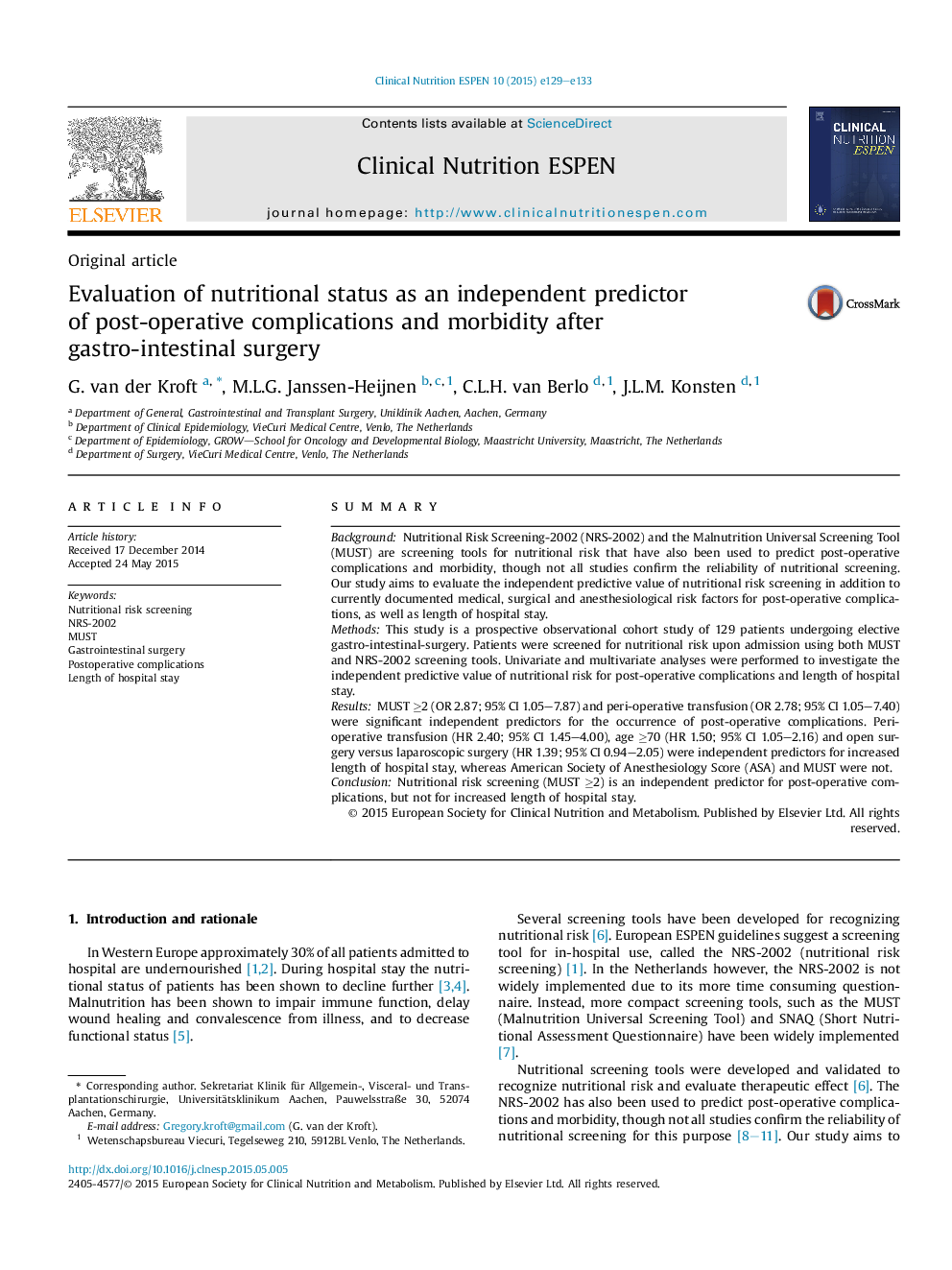| Article ID | Journal | Published Year | Pages | File Type |
|---|---|---|---|---|
| 2685056 | Clinical Nutrition ESPEN | 2015 | 5 Pages |
SummaryBackgroundNutritional Risk Screening-2002 (NRS-2002) and the Malnutrition Universal Screening Tool (MUST) are screening tools for nutritional risk that have also been used to predict post-operative complications and morbidity, though not all studies confirm the reliability of nutritional screening. Our study aims to evaluate the independent predictive value of nutritional risk screening in addition to currently documented medical, surgical and anesthesiological risk factors for post-operative complications, as well as length of hospital stay.MethodsThis study is a prospective observational cohort study of 129 patients undergoing elective gastro-intestinal-surgery. Patients were screened for nutritional risk upon admission using both MUST and NRS-2002 screening tools. Univariate and multivariate analyses were performed to investigate the independent predictive value of nutritional risk for post-operative complications and length of hospital stay.ResultsMUST ≥2 (OR 2.87; 95% CI 1.05–7.87) and peri-operative transfusion (OR 2.78; 95% CI 1.05–7.40) were significant independent predictors for the occurrence of post-operative complications. Peri-operative transfusion (HR 2.40; 95% CI 1.45–4.00), age ≥70 (HR 1.50; 95% CI 1.05–2.16) and open surgery versus laparoscopic surgery (HR 1.39; 95% CI 0.94–2.05) were independent predictors for increased length of hospital stay, whereas American Society of Anesthesiology Score (ASA) and MUST were not.ConclusionNutritional risk screening (MUST ≥2) is an independent predictor for post-operative complications, but not for increased length of hospital stay.
